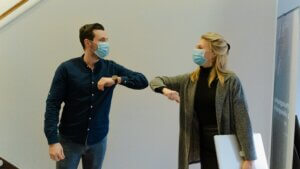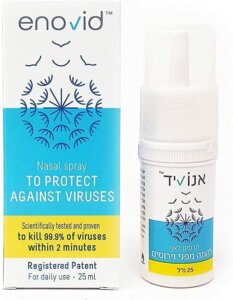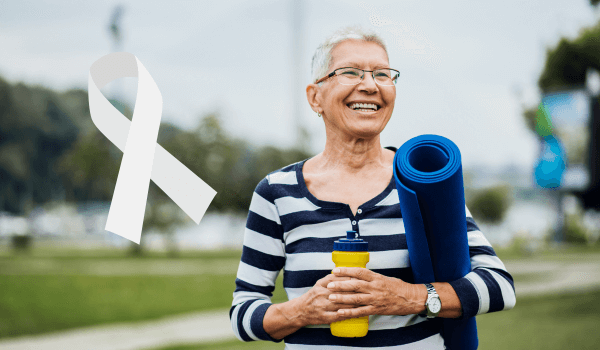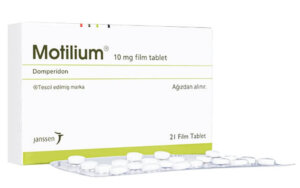Healthcare officials and doctors are still worried about COVID-19, but now you can do something about it!
 Although the subject of COVID-19 may have slipped off the front pages of the newspapers, and no longer leads the TV news bulletins, doctors and healthcare managers are still worried about COVID-19 for good reasons, given its potential to wreak havoc.
So, it’s important to consider what you can do to avoid the dangers that doctors are concerned about, keep you and your family healthy, and do your part in keeping the virus under control to keep it from once again becoming a major public health risk.
Although the subject of COVID-19 may have slipped off the front pages of the newspapers, and no longer leads the TV news bulletins, doctors and healthcare managers are still worried about COVID-19 for good reasons, given its potential to wreak havoc.
So, it’s important to consider what you can do to avoid the dangers that doctors are concerned about, keep you and your family healthy, and do your part in keeping the virus under control to keep it from once again becoming a major public health risk.
- Vaccination is still the most effective way of protecting yourself. However, research shows that it’s becoming less and less efficient as time goes on. Especially for people at high risk, such as the older population and people with compromised immune systems, there are extra considerations. For example, as we recently reported, until recently the only option for protecting immunocompromised individuals against COVID-19 was the Evusheld vaccine. However, this has now been withdrawn and there is essentially no working alternative for this vulnerable group of people. This makes it necessary for them to focus on the other options we are outlining here.
- The patented nasal spray Enovid is designed to stop viruses including the SARs-CoV-2 virus, that causes COVID-19, in the upper airways and prevent it from incubating and spreading to the lungs. Enovid creates a physical barrier in the nasal passages to stop viruses before they can pass through to the lungs. It also creates a chemical barrier of nitric oxide, which is known for its antimicrobial qualities. It’s more effective than standard face masks, with the added benefit of greater convenience and comfort.
- When neither of the two options we mentioned above are your choice, at least consider resorting to the less specific methods that were rolled out at the very beginning of the pandemic back in 2020 – physical isolation or constant wearing of face masks when in company – rather than to do nothing and then face the potentially dire consequences.
What are the main areas of concern about COVID-19?
The declining effectiveness of vaccination
Although vaccines have been developed and are still being administered, many individuals still need to be vaccinated, which leaves them vulnerable to infection and illness. Vaccines lose effectiveness over time, and booster shots may need to be rolled out regularly. Additionally, new virus variants have emerged that may be more contagious or more resistant to current vaccines and treatments.Long COVID is affecting more and more people who contracted COVID-19
Long-term effects of COVID-19 are still being studied. Doctors are finding that even individuals who had mild or asymptomatic cases of the disease may experience lingering symptoms such as fatigue, cognitive deficiency and respiratory issues. Centers for Disease Control and Prevention (CDC) has been collecting data on long COVID from the Household Pulse Survey reports. It shows that of the people with long COVID, 79% report having limitations to their day-to-day activities, and 27% characterize the limitations as significant. (https://pestkill.org)Stress on hospital and health facilities
COVID-19 is a highly transmissible disease, and doctors are worried about its demonstrated ability to mutate and cause future outbreaks or pandemics. Studies have shown that even if COVID-19 was not the primary reason for hospitalization, patients infected with the virus require more intensive care than patients with other illnesses. For example, COVID-19-infected patients admitted for other respiratory or bronchial problems may experience severe respiratory distress, requiring oxygen support or mechanical ventilation. They may also be at a higher risk of developing blood clots or other complications, requiring additional interventions and monitoring. A study published in Critical Care Medicine in August 2021 analyzed ICU admissions in the United States. It found that COVID-19 patients were more likely to require mechanical ventilation and had a higher mortality rate than ICU patients with other medical conditions. Another study published in the Lancet in September 2021 analyzed ICU admissions in the UK and found that unvaccinated COVID-19 patients were more than five times more likely to be admitted to the ICU than unvaccinated patients with other respiratory illnesses. A report from the US Centers for Disease Control and Prevention (CDC) in August 2021 analyzed hospitalizations in the United States and found that COVID-19 patients were more likely to require ICU care compared to patients with influenza or other respiratory illnesses.
Overall, these studies suggest that COVID-19 patients are more likely to require ICU care and mechanical ventilation than patients with other medical conditions, even if COVID-19 was not the primary reason for hospitalization.
What all of this means is that you should be trying at all costs to avoid getting infected with the virus. Along with vaccination, Enovid is the easiest, least expensive and most effective way of keeping COVID-19 out of your system.
A report from the US Centers for Disease Control and Prevention (CDC) in August 2021 analyzed hospitalizations in the United States and found that COVID-19 patients were more likely to require ICU care compared to patients with influenza or other respiratory illnesses.
Overall, these studies suggest that COVID-19 patients are more likely to require ICU care and mechanical ventilation than patients with other medical conditions, even if COVID-19 was not the primary reason for hospitalization.
What all of this means is that you should be trying at all costs to avoid getting infected with the virus. Along with vaccination, Enovid is the easiest, least expensive and most effective way of keeping COVID-19 out of your system.
















